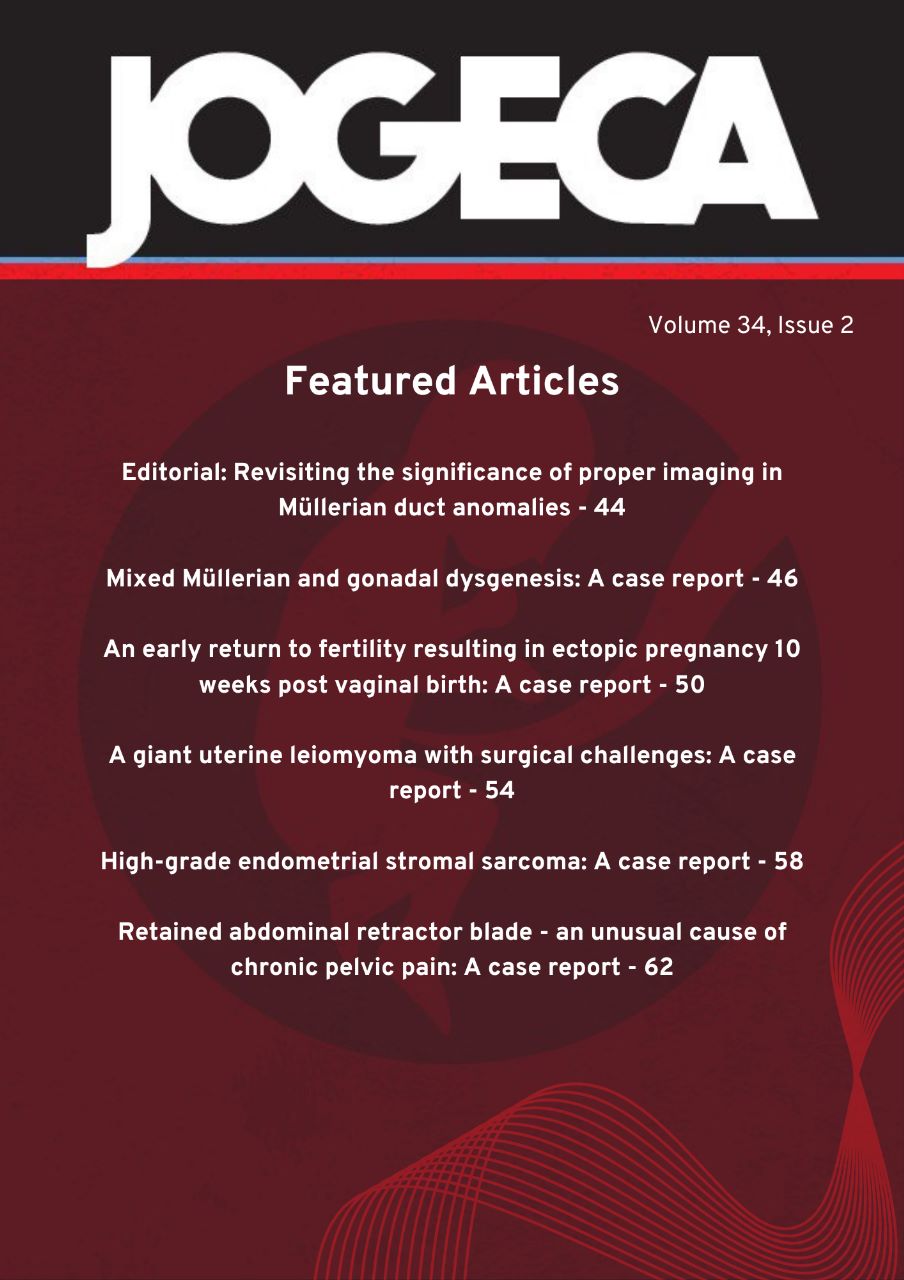MENTAL HEALTH ISSUES AMONGST DOCTORS AS A BARRIER TOWARDS ACHIEVING UNIVERSAL HEALTH COVERAGE IN KENYA.
DOI:
https://doi.org/10.59692/jogeca.v36i1.303Abstract
“Mental Health” is defined by the World Health Organization as ‘a state of mental well-being that enables people to cope with the stresses of life, realize their abilities, learn well and work well, and contribute to their community’ (1). Mental health was recognized as a priority area of health in Kenya in the wake of the scourge of the Covid-19 pandemic (2). It became an even more significant priority when it was recognized that the prevalence of mental health issues began to surge amongst health services providers as well (3). Amongst the more prevalent mental health morbidities in Kenya included anxiety and depressive disorders (4). However, by the time these issues became more prevalent, Kenya had already developed legislation to enhance our capacity to provide higher quality mental health (5).
Despite being a gem of beauty and being the economic hub of East Africa (6), the Kenyan health sector has been hard hit by the impact of mental health morbidity and mortality (7). In this context, there have been rising incidences of suicide amongst doctors (8). In addition, it is evident that there has been an increasing burden of mental health morbidity amongst health care providers, though it presently remains unquantified. It therefore stands to reason that the attainment of universal health coverage and the attainment of equitable health care in Kenya shall require the ubiquitous application of the mental health agenda amongst both patients and health care providers (9). In this regard, a four-component framework was proposed by Kumar et alia to efficaciously integrate mental healthcare in Kenya comprising: provider sensitization; continuous supervision; continuous professional training; and leadership empowerment (3).
Mental health issues intricately interdigitate with the various sub-thematic areas of the 48th Annual Scientific Congress of the Kenya Obstetrical and Gynaecological Society (KOGS). Amongst the over 100 presentations that shall feature during the oral and poster presentations we are publishing this year, it is evident that the impact of mental health issues are far-reaching, have a high potential to cascade ad infinitum and ultimately govern our tripartite advocacy objectives of enhancing health-seeking behavior, honest expression of the presentation of symptoms to health service providers in order to guide the diagnostic process, and adherence to therapeutic plans in order to optimize overall prognosis.
As we pursue our continuous professional development in this year’s congress, let us remember to embrace the value of provider care in relation to mental health, in concurrence with the sagacious deduction of Prince and colleagues that there can be ‘no health without mental health’ (10). The raising of awareness of mental health issues in the general and medical populations is a key contribution by the KOGS towards advocacy for the realization of quality universal health coverage.
Downloads
Published
How to Cite
License
Copyright (c) 2024 The Authors.

This work is licensed under a Creative Commons Attribution 4.0 International License.




